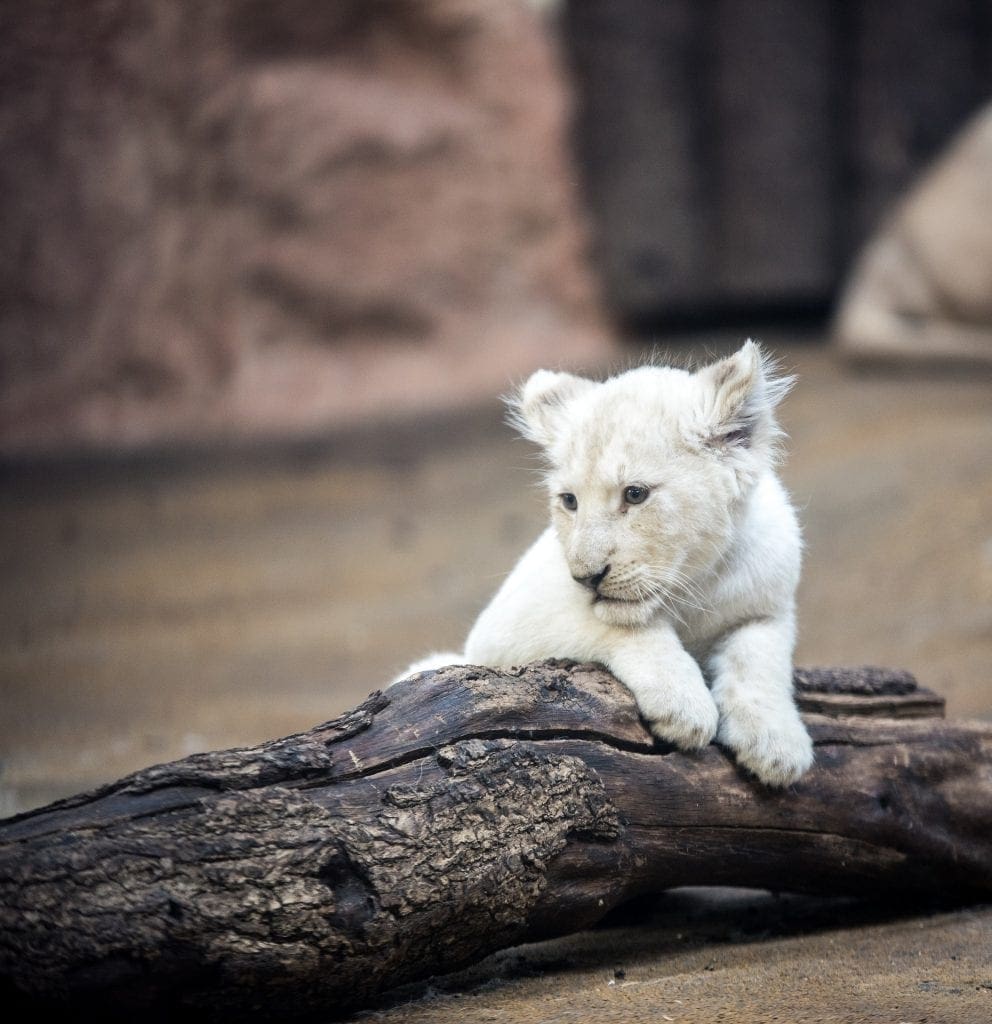Popular tourist attraction – the Rhino and Lion Nature Reserve – in South Africa has announced that it will no longer be offering cub-petting to the public.
Less than 60km from Johannesburg, the nature reserve is located in the Cradle of Humankind World Heritage Site.
The Bothongo Group, the reserves new owners, are refocusing its efforts on animal welfare rather than profit.

Jessica Khupe, Rhino and Lion Nature Reserve Brand Manager said:
As new owners, we have acknowledged that what was acceptable in 1990 when the reserve first opened to the public, may no longer be acceptable in 2019.
Human beings have always wanted to get up close and personal with wild animals, understandable as this is, studies have shown that it is not good for animal welfare.
Recent campaigns have highlighted the global problem of cub petting and unscrupulous operators both locally and abroad. Simply put, it is not necessary to touch an animal to connect with the importance of wildlife conservation. We’d also like to make it very clear that we are utterly opposed to the abhorrent canned hunting and lion bone trade.
The Rhino and Lion park’s new COO, Mike Fynn, explains:
Breeding and rearing animals for the purpose of cub petting and interaction is not only undesirable from an animal welfare perspective, it’s also not a sustainable business model. From now on, we will focus on educating the public about wildlife and the importance of conservation.

The reserve recently introduced a three-year plan to upgrade all of its public facilities and wildlife enclosures. They will be remodelled around the welfare of the animals, many of which are endangered due to habitat loss and poaching.
According to Fynn, their team is dedicating itself to a new internal ‘mantra’ of being a ‘nurture reserve’, by focusing on the following:
- Maintaining a healthy, genetically diverse and contented animal collection
- Working with local and international institutions and bodies to ensure the management of the longterm survival of endangered and threatened species
- Pledging not to sell or exchange any of its ‘animal family’, especially the lions, and if so, only to reputable, accredited facilities and/or licensed wildlife institutions
- Breeding animals only if it serves a conservation purpose
Jessica Khupe continued:
To those of our visitors who are disappointed that they can no longer cuddle a lion cub at our reserve: this is the right thing to do,
As animal lovers, we understand how charismatic African wildlife is. But the truth is that our love for our animals may inadvertently harm them, even though we don’t mean to.
Khupe added that she feels that ‘our wildlife family now has a voice again’.
Lion cub-petting is without a doubt linked to the despicable canned hunting industry and we applaud the Rhino and Lion Park’s decision to move against the breeding of their lions.
SOURCE: GETAWAY
